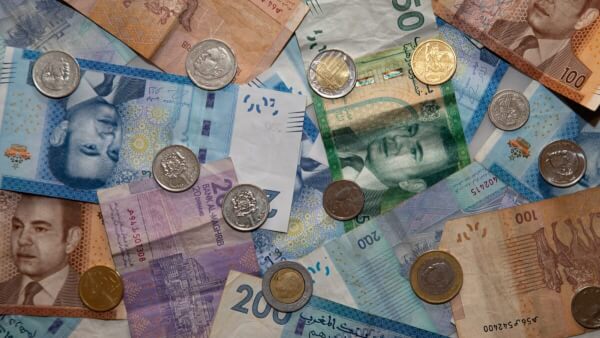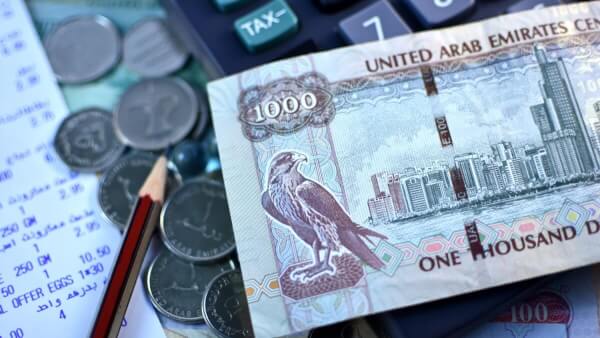Starling Bank limits: transfers, withdrawal, spending
Read our guide to Starling Bank limits on UK and international transfers, ATM withdrawals and card spending for personal customers.

With glaciers on one end and rolling ocean waves on the other, New Zealand offers the ultimate experience for any expat. And with a population of approximately 4 million people, it’s growing steadily thanks to the influx of expats.
It’s for these reasons and more that expats and travelers alike are drawn to move to New Zealand. But if you’re looking to settle down for a bit, you’ll need a local bank account. Luckily, our trusty guide covers everything you need to know.
For foreigners, New Zealand banks are relatively easy to deal with as long as you have the required documents. These include:
If you’re planning on an extended stay, opening a bank account from abroad should be one of your concerns. In order to be eligible to do this, you’ll need a work or resident visa, regardless of where you’re coming from. Fortunately, it’s straightforward to open an account online even up to a year before you’re planning to come. Most banks offer a simple form to fill out, along with the required documents outlined above.
Old-world bank accounts only work properly in one country. They hold money only in one currency. And it gets expensive when you try to use them across borders. Wise's new Borderless accounts solve all of this.
Now you can send, receive and organise your money internationally, without crazy fees or even-crazier exchange rates – just a small, fair charge when your money moves between currencies.
New Zealand has plenty of local banks to choose from. However, after opening an account from overseas, you won’t be able to make withdrawals until you visit the bank in person on arrival. After providing identification and proving residency, you’ll get access to your new bank account.
The largest and most popular banks that allow you to do this include:
Below is a breakdown of these banks, along with quick facts on what they offer specifically and how it may benefit you.
ANZ (Australia and New Zealand banking group) is the largest banking provider in New Zealand with over 800 branches and ATMs worldwide. They offer expats everyday banking, business banking, investments, insurance, foreign exchange and even credit card application with proof of residence for over a year. Online banking is possible with all accounts.
ASB (also known as Auckland Savings Bank) has a range of accounts for expats including a Foreign Currency Account, which provides an easy way to manage money between a foreign country and New Zealand. Student accounts are also available for those who qualify, and there are over 100 branches and 300 ATMs. Applying online can be done through email on their website.
BNZ (Bank of New Zealand) offers multi-currency accounts and wealth management services specifically designed for expats. However, they have a steep minimum balance requirement for some of their products, so make sure to read the fine print. Customers must be at least 18 years of age, and there are over 250 branches and 650 ATMs within the country.
Westpac Banking Corporation (more commonly known as Westpac) offers a Migrant Banking Package, International Student Account, Investment opportunities and over 1400 branches and 400 ATMs worldwide. Online and mobile banking make it all easy and convenient.
Though many banks provide access to opening an account overseas, it’s easy to forget about the fees. Whether it’s for opening a new account, credit and debit card fees, overage fees, or international bank fees in general, with any bank account it’s almost impossible to avoid fees.
Reading the fine print is a necessity when trying to avoid banking fees and charges. These add up over time for even the smallest of actions, like taking money out of an ATM. Being aware of every charge will ensure that you and your wallet stay happy.
One of the traps many travellers fall into is when they need to send money abroad either to or from their New Zealand bank account. A single international bank transfer (using a method called SWIFT) can be especially expensive if you’re only sending a small amount of money as there can be up to five banks charging you a fixed fee in order to use the service. Not only that, but banks and currency conversion services often given you a poor exchange rate and hide fees into a large mark-up on the conversion rate.
If you’re looking for a way to transfer money internationally with low, transparent fees, consider Wise. Wise allows you to move money between accounts using the real exchange rate.That means no markup, no hidden fees for you and more focus on the real issues - like where to set up your new home and office in New Zealand.
*Please see terms of use and product availability for your region or visit Wise fees and pricing for the most up to date pricing and fee information.
This publication is provided for general information purposes and does not constitute legal, tax or other professional advice from Wise Payments Limited or its subsidiaries and its affiliates, and it is not intended as a substitute for obtaining advice from a financial advisor or any other professional.
We make no representations, warranties or guarantees, whether expressed or implied, that the content in the publication is accurate, complete or up to date.

Read our guide to Starling Bank limits on UK and international transfers, ATM withdrawals and card spending for personal customers.

Find out how to open a Starling Bank account online in the UK with our comprehensive guide, covering eligibility, requirements and how to get started.

A list of the top 10 banks in Morocco, including CIH Bank, Attijariwafa Bank, Bank of Africa and Al Barid Bank.

A list of the top 10 banks in Dubai, including Emirates NBD, First Abu Dhabi Bank, Mashreq Bank, RAKBANK and HSBC UAE.

Looking to open a new bank account? Read our Halifax Reward current account review and find out everything you need to know.

Read our comprehensive guide to the best USD accounts in the UK, including features, fees and everything else you need to know.